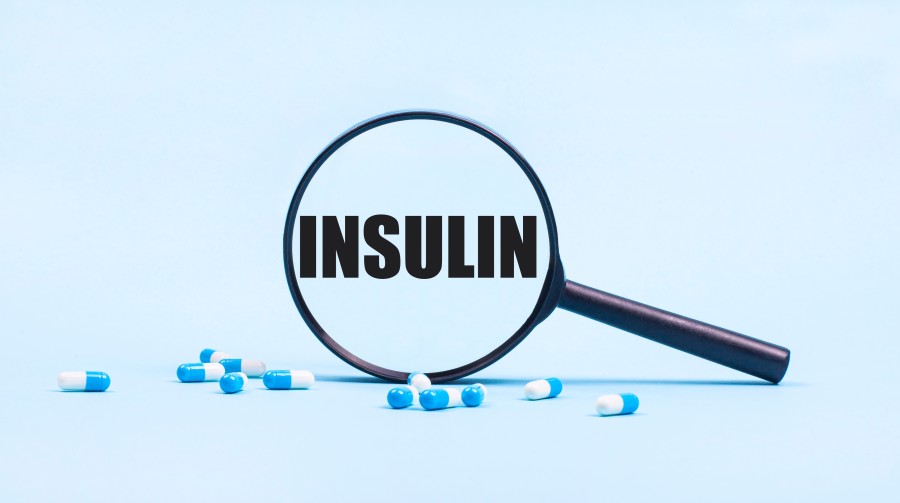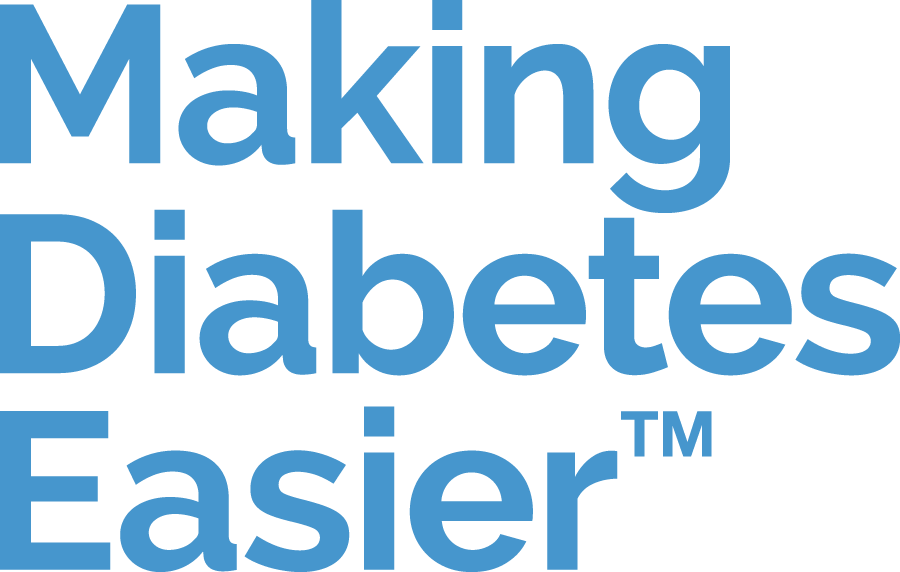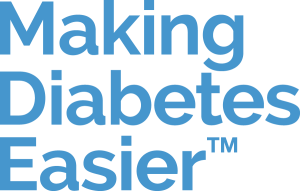Does insulin really make you fat? The science behind weight gain in type 1 diabetes

Does insulin really make you fat? What the science says
Insulin treatment can cause weight gain in people with type 1 diabetes.1,2 However, some people may not be affected, and there are things you can do to prevent weight gain.1–3
In this guide, we explain the science behind insulin treatment, why it may lead to increased weight and fat build-up, and what you can do to keep the extra pounds off if you’re living with type 1 diabetes.
The science behind insulin
Insulin is the hormone that helps ensure your blood glucose levels don’t spike too high after a meal.4,5 It’s produced by cells in your pancreas called beta cells.4
When you eat, your body breaks down the nutrients in the food and turns them into glucose. It then releases the glucose into your bloodstream, so your cells can use it as energy.4,5
Insulin ensures your blood glucose doesn’t spike by redirecting it away from your bloodstream and into other areas of your body, such as your:5
- Liver
- Muscles
- Adipose tissue, also known as fat
Insulin is, therefore, essential to your body’s metabolism and energy use.5
How insulin helps build fat in people without diabetes
Insulin helps your body save energy for later use, and when there’s excess glucose (for example, when you’ve eaten too many carbs), insulin will direct your body to store it as fat.3,5
Insulin can also make you feel hungry by stimulating the appetite centres in your brain.1,5
Why you may be gaining weight while taking insulin
If you have type 1 diabetes, you’ll need to take insulin therapy through injections, an insulin pen or an insulin pump.4
Insulin therapy may cause you to gain weight through the mechanisms explained above. However, the effects may be heightened, because administered insulin moves through the body in a different way to the insulin that your body creates naturally.1,2 The naturally secreted hormone goes through your liver first, but injected insulin travels throughout your body, affecting muscles and fat tissue.1,2
Additionally, when taken as therapy, more insulin may reach your brain, stimulating its appetite centres and telling you to eat more.1
Furthermore, insulin helps store excess glucose as fat, so if you eat more carbs to match your insulin intake, you may develop more fat due to your therapy.3,5
Finally, if you have to treat hypoglycaemia (low blood glucose) regularly by eating more carbs, you may find it can lead to weight gain.3
Regardless of the mechanism through which insulin may cause you to gain weight, the good news is that the effects can be small, as long as you maintain an active lifestyle and eat a balanced diet.3

The science behind insulin
How to maintain a healthy weight while taking insulin
Maintaining a healthy weight while taking insulin is possible and achievable.3 Make sure you stay active, eat well and consider these tips:3
Take the right amount of insulin
Taking too much insulin may cause episodes of hypoglycaemia. This, in turn, may lead you to take more hypo treatments, which are very energy-dense and can result in weight gain.3
Consider reducing your portions
Rather than cutting out your favourite foods, consider reducing your portions. Gradually reducing your meal size can go a long way in helping you lose or maintain your weight.3
Conversely, eating just a bit too much each time can quickly add up.3 To keep the extra pounds off, you don’t need to cut out your favourite foods entirely – but be mindful of portion sizes.3
Eat a balanced diet
Following a balanced diet is more effective and more sustainable than completely cutting out high-calorie foods.3 Things like desserts can, of course, contain many calories, but you can still consume them in moderation.3 Make sure your diet is balanced with plenty of fruit and vegetables, healthy protein sources and whole grains.6
Bear in mind that each person is different, so the diet that fits you best will be influenced by various factors, including your age, activity levels and weight.3
Speak to your nutritionist or healthcare team about an individualised diet that suits your needs.
Be smart about your workouts
Contrary to popular belief, cardio isn’t the only type of exercise that helps you lose weight.3 Incorporating weights or other forms of resistance training into your workout can help you build muscle, increasing the number of calories you burn at rest.3
When choosing your workout, consider another helpful tip: pick an activity you enjoy because that will help you stick to it in the long run.3 Find out more tips for exercising with diabetes in our article.
Be more active
Finally, incorporating more movement into your day-to-day activity can add up and increase the number of calories burned each day.3

How to maintain a healthy weight while taking insulin
Is it possible to not gain weight from insulin?
Weight gain in people who have type 1 diabetes from insulin therapy is very common.2 However, limited research suggests that not everyone is affected.2
The mechanisms of weight gain among people with type 1 diabetes are complex – insulin therapy is just one of the factors that may cause you to put on more pounds.2,3 While you’ll still need to take insulin as part of your treatment, you have control over other factors that can help you keep a healthy weight, like diet and exercise.2,3
Speak to your healthcare team if you have any questions or concerns about weight gain from your treatment or if you could do with some guidance on weight management.3
Insulin is a hormone that helps keep your blood glucose in check.4 It does so by moving glucose away from your bloodstream and into your liver, muscles and fat tissue.5 When taken as therapy, insulin can contribute to weight gain.2
However, weight management is possible with regular physical activity, a balanced diet, taking the correct insulin dose and helpful advice from your healthcare professional.3
To learn more about managing your weight with diabetes, read our dedicated article.
Sources
- Vernon G. Do insulin injections make you fat? Br J Gen Pract. 2018;68(669):188. https://doi.org/10.3399/bjgp18X695537
- Mottalib A, Kasetty M, Mar JY, et al. Weight management in patients with type 1 diabetes and obesity. Curr Diab Rep. 2017;17(10):92. https://doi.org/10.1007/s11892-017-0918-8
- JDRF. How to lose weight safely with type 1 diabetes. Accessed 23 July 2024. Available at: https://jdrf.org.au/how-to-lose-weight-safely-with-t1d/
- JDRF. Insulin. Accessed 23 July 2024. Available at: https://jdrf.org.uk/knowledge-support/about-type-1-diabetes/treatments-for-type-1-diabetes/insulin/
- Infante M. The insulin journey in the human body [Internet]. Evolving Concepts in Insulin Resistance. IntechOpen; 2022. Available from: http://dx.doi.org/10.5772/intechopen.107906
- Rubin D, Bosy-Westphal A, Kabisch S, et al. Nutritional recommendations for people with type 1 diabetes mellitus. Exp Clin Endocrinol Diabetes. 2021;129(S01):S27–S43. https://doi.org/10.1055/a-1284-6036


